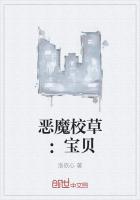It was a rare cold day when I struggled through the crowd out of the station in Moscow, and began fighting with the sledge-drivers who asked a hundred roubles to take me to the Metropole. I remembered coming here a year ago with Colonel Robins, when we made ten roubles a limit for the journey and often travelled for eight. To-day, after heated bargaining, I got carried with no luggage but a typewriter for fifty roubles. The streets were white with deep snow, less well cleaned than the Petrograd streets of this year but better cleaned than the Moscow streets of last year. The tramways were running. There seemed to be at least as many sledges as usual, and the horses were in slightly better condition than last summer when they were scarcely able to drag themselves along. I asked the reason of the improvement, and the driver told me the horses]26]were now rationed like human beings, and all got a small allowance of oats. There were crowds of people about, but the numbers of closed shops were very depressing. I did not then know that this was due to the nationalization of trade and a sort of general stock-taking, the object of which was to prevent profiteering in manufactured goods, etc., of which there were not enough to go round. Before I left many shops were being reopened as national concerns, like our own National Kitchens. Thus, one would see over a shop the inscription, "The 5th Boot Store of the Moscow Soviet" or "The 3rd Clothing Store of the Moscow Soviet" or "The 11th Book Shop." It had been found that speculators bought, for example, half a dozen overcoats, and sold them to the highest bidders, thus giving the rich an advantage over the poor. Now if a man needs a new suit he has to go in his rags to his House Committee, and satisfy them that he really needs a new suit for himself. He is then given the right to buy a suit. In this way an attempt is made to prevent speculation and to ensure a more or less equitable distribution of the inadequate stocks. My greatest surprise was given me by the Metropole itself, because the old wounds of the revolution, which were left unhealed all last summer, the shell-holes and bullet splashes which marked it when I was here before, have beenrepaired.
Litvinov had given me a letter to Karakhan of the Commissariat of Foreign Affairs, asking him to help me in getting a room. I found him at the Metropole, still smoking as it were the cigar of six months ago. Karakhan, a handsome Armenian, elegantly bearded and moustached, once irreverently described by Radek as "a donkey of classical beauty," who has consistently used such influence as he has in favour of moderation and agreement with the Allies, greeted me very cordially, and told me that the foreign visitors were to be housed in the Kremlin. I told him I should much prefer to live in an hotel in the ordinary way, and he at once set about getting a room for me. This was no easy business, though he obtained an authorization from Sverdlov, president of the executive committee, for me to live where I wished, in the Metropole or the National, which are mostly reserved for Soviet delegates, officials and members of the Executive Committee. Both were full, and he finally got me a room in the old Loskutnaya Hotel, now the Red Fleet, partially reserved for sailor delegates and members of the Naval College.
Rooms are distributed on much the same plan as clothes. Housing is considered a State monopoly, and a general census of housing accommodation has taken place. In every district there are housing committees to whom people wanting rooms apply. They work on the rough and ready theory that until every man has one room no one has a right to two. An Englishman acting as manager of works near Moscow told me that part of his house had been allotted to workers in his factory, who, however, were living with him amicably, and had, I think, allowed him to choose which rooms he should concede. This plan has, of course, proved very hard on house-owners, and in some cases the new tenants have made a horrible mess of the houses, as might, indeed, have been expected, seeing that they had previously been of those who had suffered directly from the decivilizing influences of overcrowding. After talking for some time we went round the corner to the Commissariat for Foreign Affairs, where we found Chicherin who, I thought, had aged a good deal and was (though this was perhaps his manner) less cordial than Karakhan. He asked about England, and I told him Litvinov knew more about thatthan I, since he had been there more recently. He asked what I thought would be the effect of his Note with detailed terms published that day. I told him that Litvinov, in an interview which I had telegraphed, had mentioned somewhat similar terms some time before, and that personally I doubted whether the Allies would at present come to any agreement with the Soviet Government, but that, if the Soviet Government lasted, my personal opinion was that the commercial isolation of so vast a country as Russia could hardly be prolonged indefinitely on that account alone. (For the general attitude to that Note, see page 44.)I then met Voznesensky (Left Social Revolutionary), of the Oriental Department, bursting with criticism of the Bolshevik attitude towards his party. He secured a ticket for me to get dinner in the Metropole. This ticket I had to surrender when I got a room in the National. The dinner consisted of a plate of soup, and a very small portion of something else. There are National Kitchens in different parts of the town supplying similar meals. Glasses of weak tea were sold at 30 kopecks each, without sugar. My sister had sent me a small bottle of saccharine just before I left Stockholm, and it was pathetic to see the childish delight with which some of my friends drank glasses of sweetened tea.















